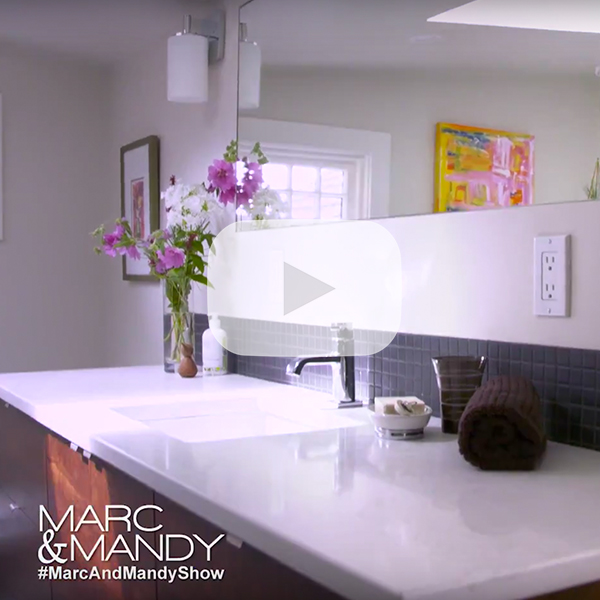Who should you get to do the work? This is the crucial question. You could have an amazing design and an appropriate budget, but still have an awful experience if the contractor you are collaborating with has terrible workmanship, poor communication, or lacks integrity.
STEP 1 – Seek out recommendations.
- Ask friends and colleagues if they can personally recommend someone.
- Ask a local real estate agent or local suppliers.
- Drive around your neighbourhood and look for active projects where you can talk to the homeowner about their experience.
- Google can provide a list of contractors in your area, with reviews
- Houzz.com have companies that pay to be listed as Local Pros, with reviews – note that they can be deceiving if the contractor only solicits reviews from happy clients.
- The BBB (Better Business Bureau) rates companies. Note that ratings are automatically positive unless complaints have been filed against that company and are not a guaranteed indicator of a good contractor.
- Contractor websites
- Search a contractor’s name with other keywords like scam or rip-off to see if you get any results.
Please also note that even good contractors can receive complaints!
Don’t be afraid to call a contractor and ask how they resolved a client’s issue. Was the complaint resolved quickly and professionally? And did the contractor finish the project with a satisfied customer?
STEP 2 – Create a list of questions & start calling around.
As you talk to them, take note of the following:
- Do they answer the phone professionally?
- Are you being spoken to with respect?
- Are they interested in and excited by your project?
- Do they answer your questions directly or do they give you the run-around about timeline and cost?
- Start by briefly explaining the scope of the job and where you live.
- Ask if this is work that they have interest and experience in. If they don’t, move on. If yes,
- Ask if they have room in their schedule to take it on in your time frame.
- Ask if they have a business license, and for how long they’ve been in business.
- Do they have WCB, and liability insurance? If they don’t, move on.
- Could they provide a list of references you can connect with? Or maybe, could you stop by an active jobsite?

STEP 3 – The Interview.
You should provide:
- Any plans done by an architect or designer.
- As clear a scope as possible.
- Ideally, a finish schedule, to make quotes more accurate.
- If you are comfortable, provide a budget range. This helps the contractor gage if it’s realistic relative to what you are requesting and allows early advice on potential compromises that might need to be made, or possible cost savings.
If you discuss other options with a contractor, ask that contractor to provide a separate cost on those elements so that you can more easily compare quotes between different contractors.
Questions to ask the contractor:
How long have they been in business?
- More experienced contractors have often worked through growing pains and have established systems.
- Newer contractors still have technical experience from being in the trades. Consider starting with a small project first, and when you’re satisfied with the quality, move up to a larger project.
What is the turn-around time on their quotes?
This gives you an idea of whether they do what they say they are going to do, and when you should follow up with them.
Who manages and works on their projects, and what experience do they have?
You’ll want experienced people on the job. You have the right to know who will be working on your house and how much experience they have.
How do they handle unforeseen construction issues? AND are all changes and modifications documented in some way?
There is usually something that does not go exactly to plan in any given project. It can be something minor or it can be something more involved. How is the communication of the problem handled and solved, and what is the financial impact to the project?
Ideally, you should receive immediate notification of the issue and suggestions for the solution. Once a problem is identified, a change order should be issued for your approval that shows the costs and the impact on the schedule before moving forward. This way all parties have proof of the changes and of the approvals.

How do you deal with product selections?
How do they choose these items? Some have a standard plumbing fixture list, or a package for a bathroom suite for instance, whereas others may require you to provide a list of items that you wish to use in the project.
Do you have a designer on staff?
Some construction companies have their own interior designer on staff and others do not. Those who don’t may either have to outsource this job or ask you to hire your own interior designer should one be needed
If you decide to work with them, do they still have time in their schedule to take on your project?
Things may have changed since you first spoke with the contractor. Maybe they were approved on another project or maybe they’ve booked vacation. It’s worth checking in with them to make sure that they can accommodate you.
Can they provide you with some references? Or can you visit an active jobsite or a recently completed project?
They should, without hesitation, provide you with some references.
If you are able to go to an active jobsite, take note of the following:
- The cleanliness of the jobsite
- Is protection for existing areas of the space being addressed?
- Whether or not safety equipment is being used, i.e., fall protection for framers working up high, hearing and eye protection, other PPE.
- Has security been set-up if the home is “open”? ie new windows and doors are not yet in place and for staged materials, security fencing, sometimes surveillance cameras can be used.
- How are the tradespeople behaving? They should not be smoking in the space and preferably not even on the property. Nor should they be cursing all day.
STEP 4 – The Evaluation.
Once you’ve met with all the potential contractors, called their references or seen some of their work, and received their quotes, you’ll need to evaluate them and most likely ask some follow-up questions before making a final decision.
Assuming that you provided clear enough direction and scope, the quotes you get should be similar both in scope and in pricing. If one is much lower then there’s a good chance that the contractor missed something and will most likely come back to you for more money at the end of the project, or he does poor quality work or is, at the worst, out to scam you.
Evaluate the quote itself.
- A two-lined quote and a professional, detailed multi-page proposal on letterhead are vastly different.
- Is your information on the quote correct? – name, address, phone number etc.
- Is their information on the quote? – name, office location, contact information etc.
- Is the scope detailed, with quantified items?
- Do they note approximately how long the project is expected to take?
- Do they list their insurance and WCB information?
- Are Payment terms or a schedule listed?
- Most importantly does it list what is NOT included? Potential billable addition to scope, work yet to be identified, or aspects of the job that the contractor is not able or willing to take on or be responsible for
One last note:
Something that I often touch on when first getting to know a potential client is that there is value finding a personality match. You place a huge amount of trust in a contractor, so identifying who you will work with is THE most important decision you’ll make.
For more information, check out our podcast All Things Renovation at www.AllThingsRenovation.com or click on the Podcast page at www.woodbeart.com. The first series of episodes focuses on hiring a contractor.


